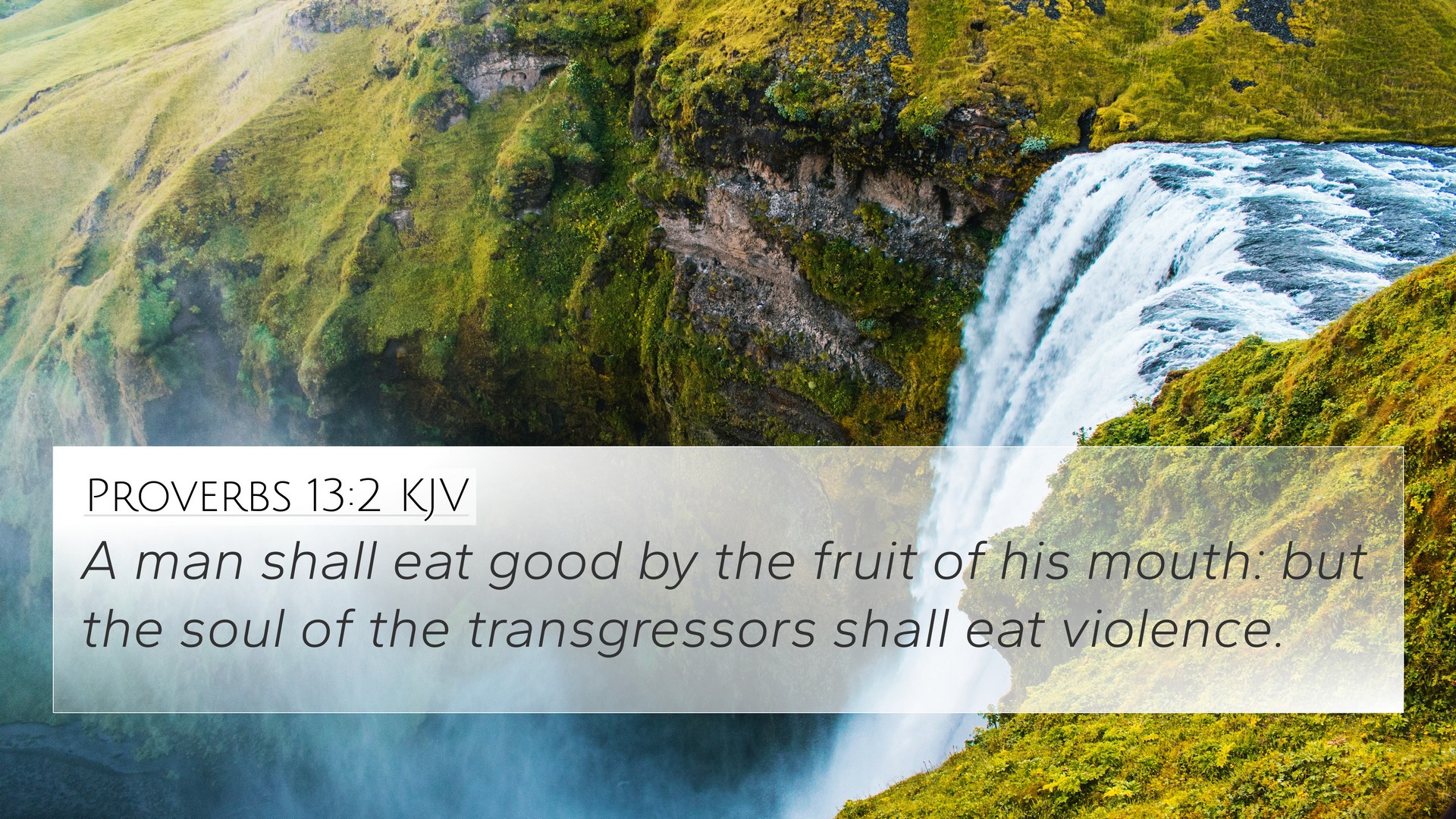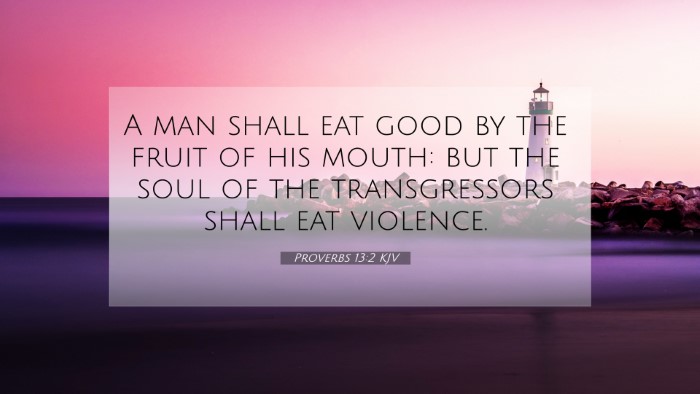Understanding Proverbs 13:2
Proverbs 13:2 states, "A man shall eat good by the fruit of his mouth: but the soul of the transgressors shall eat violence." This verse emphasizes the power of words and the consequences of our speech. By exploring the insights from various public domain commentaries, we can uncover a deeper understanding of this wisdom literature.
Meaning and Interpretation
This verse contrasts the positive outcomes of wise and righteous speech with the dire consequences that come from engaging in sinful behavior. Matthew Henry notes that the "fruit of the mouth" refers to the outcomes of one’s words, highlighting the importance of speaking wisely. Albert Barnes elaborates by emphasizing that the benefits of wise speech lead to personal wellbeing and positive relationships. Adam Clarke adds that while the righteous flourish from their careful speech, the wicked reap destruction as a result of their violent words and actions.
Thematic Connections in the Bible
Proverbs 13:2 can be analyzed further through various thematic connections and cross-references within the Scriptures. Here are some key Bible verses that relate to the themes found in Proverbs 13:2:
- James 3:5-10: Discusses the power of the tongue and how it can cause great destruction or provide blessings.
- Proverbs 18:21: States, "Death and life are in the power of the tongue," reinforcing the idea that our words can lead to either good or harm.
- Matthew 12:36-37: Indicates that we will have to give account for every careless word we speak, emphasizing the importance of our speech.
- Galatians 6:7: Explains the principle of sowing and reaping, mirroring the idea that what we say and do has significant consequences.
- Proverbs 15:4: States, "A wholesome tongue is a tree of life," highlighting how good speech positively affects health and relationships.
- Proverbs 21:23: Advises, "Whoso keepeth his mouth and his tongue keepeth his soul from troubles," echoing the theme of wisdom in communication.
- Proverbs 10:31-32: Contrasts the mouth of the just which bring forth wisdom, with the perverse mouth which brings forth wickedness.
Comparative Bible Verse Analysis
When performing a comparative study of the chosen verses, we can see a clear inter-Biblical dialogue regarding the power of words. Proverbs 13:2 not only stands on its own but resonates with the teachings found throughout the Bible. The juxtaposition of good and evil speech presents a moral framework that encourages believers to reflect on their communication and its impact.
Tools for Bible Cross-Referencing
For those interested in diving deeper into the study of Proverbs 13:2 and its connections, utilizing tools for Bible cross-referencing can significantly enhance understanding:
- Bible Concordance: A useful resource to find instances of specific words and their connections within the scripture.
- Bible Cross-Reference Guide: Helps to navigate similar themes or verses across the Bible.
- Cross-Reference Bible Study: A method that allows believers to explore relationships between different scriptures systematically.
- Bible Chain References: Connecting verses with similar themes into a chain for comprehensive study.
How to Use Bible Cross-References
When looking for cross-references for Proverbs 13:2, consider these tips:
- Identify Key Themes: Focus on speech, consequences, and righteousness.
- Look for Similar Ideas: Explore other verses that discuss the nature of words and their impact.
- Contextual Reading: Understand the cultural and historical context of the verses in relation to each other.
- Utilize Online Resources and Tools: Many online platforms and applications provide comprehensive cross-referencing tools that can aid in study.
Conclusion
By examining Proverbs 13:2 in light of various commentaries and related verses, we discover rich layers of meaning regarding the importance of our words and their connection to righteous living. This verse encourages believers to speak wisely, understanding that our words not only reflect our character but also have the power to influence our lives and the lives of those around us.















